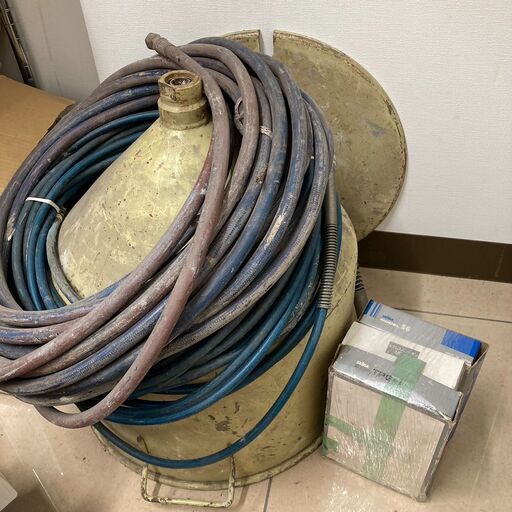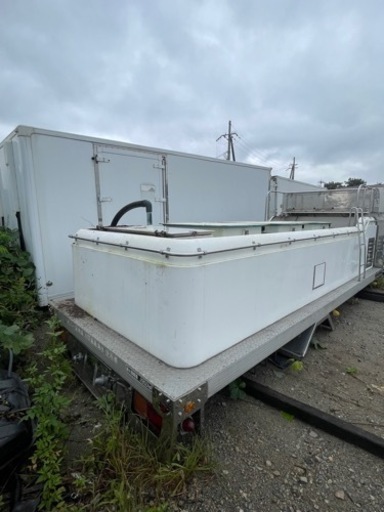-
シーンから探す
- シャツ
- ハンドバッグ
- 外装、エアロパーツ
- タイヤ、ホイール
- 工具、DIY用品
- 楽器、器材
- コミック/アニメ
- ゲーム
- パンツ
- コミック/アニメ
- 静岡県のその他
- 映画関連グッズ
- スニーカー
- テント/タープ
- 飲料
- メンズファッション
- 弦楽器、ギター
- 棚/ラック
- レザージャケット
- 工具、DIY用品
- スニーカー
- クラブ
- レディースアクセサリー
- 遊戯王
- 魚類、水生生物
- スニーカー
- フィッシング
- 外装、エアロパーツ
- オーディオ機器
- ウィッグ/エクステ
- 農業
- ヘアアイロン
- ブランド別
- 全巻セット
- その他
- 宮崎県のその他
- ポケモンカードゲーム
- スキンケア/基礎化粧品
- 魚類、水生生物
- カーオーディオ
- ミリタリー
- ブレスレット
- キャラクターグッズ
- フィギュア
- 酒
- アウトドア
-
贈る相手から探す
- リール
- その他
- 楽器、器材
- クラブ
- オーディオ機器
- 家庭用ゲーム本体
- シャツ
- 時計
- クラブ
- ロッド
- スポーツ別
- 福岡県のその他
- ダウンジャケット
- 冷暖房/空調
- クラブ
- ダウンジャケット
- クラブ
- ロングワンピース
- デニム/ジーンズ
- ゲームソフト/ゲーム機本体
- ビデオカメラ
- ショルダーバッグ
- アイドル
- 映画関連グッズ
- ロッド
- 植物/観葉植物
- その他
- ブルーレイレコーダー
- 美術品
- 工具/メンテナンス
- レディースアクセサリー
- 抱き枕
- 国内自動車本体
- メンズファッション
- 埼玉県の生活雑貨
- ホビーラジコン
- 国内自動車本体
- ぬいぐるみ
- その他
- その他
- ミリタリー
- クラブ
- その他
- オートバイ
- その他
- 植物/観葉植物
- その他
- 家具、インテリア
- 自動車
- 電子楽器
- マフラー
- その他
- カテゴリから探す
- おまとめ注文・法人のお客様
【】【通電OK】【店頭引取限定】seiwa 精和産業 エアレス塗装機 ベスト スーパーエクシード70E 82,500円(税込)
-
商品説明・詳細
-
送料・お届け
商品情報
【メーカー】seiwa 精和産業【商品名】エアレス塗装機【型番】スーパーエクシード70E【質量】41kg【最大吐出量】7.0L/min【常用最大圧力】22MPa(220kgf/cm2)【付属品】ホッパー、エアレスガン付き【電源】単相100V 950W【状態】通電OKですが、実際に塗料を使用しての確認は行っておりません。 全体的に汚れ・キズ・サビが多いです。その他、スペックはメーカーホームページ、状態は店頭でご確認ください。店頭引き取り限定とさせていただいておりますので、郵送等のご相談には、ご対応できかねますので予めご了承ください。また、販売金額は当店スタッフが商品の状態を踏まえたうえで設定しているため、値引き交渉等も承ることが出来かねますので、ご了承ください。なんでもリサイクルビッグバン工具館は工具の専門店です。こちらの商品以外にも色々な商品が沢山あります!もちろん買取も随時募集していますので不要な工具がございましたら是非!工具館までお持ちください!
残り 5 点 82,500円
(476 ポイント還元!)
翌日お届け可(営業日のみ) ※一部地域を除く
お届け日: 12月30日〜指定可 (明日16:00のご注文まで)
-
ラッピング
対応決済方法
- クレジットカード
-

- コンビニ前払い決済
-

- 代金引換
- 商品到着と引き換えにお支払いいただけます。 (送料を含む合計金額が¥291,028 まで対応可能)
- ペイジー前払い決済(ATM/ネットバンキング)
-
以下の金融機関のATM/ネットバンクからお支払い頂けます
みずほ銀行 、 三菱UFJ銀行 、 三井住友銀行
りそな銀行 、ゆうちょ銀行、各地方銀行 - Amazon Pay(Amazonアカウントでお支払い)
-




























